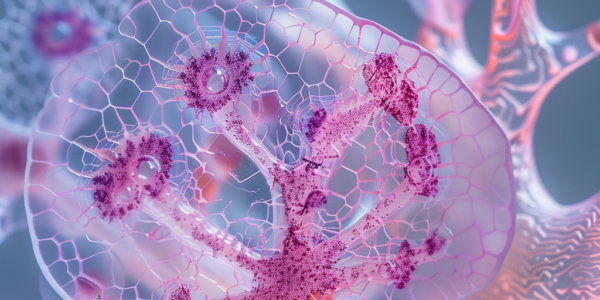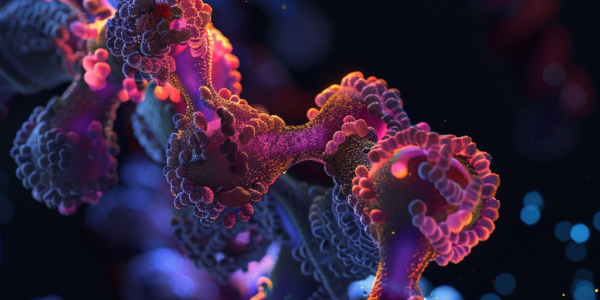Scientists Grow ‘Mini Kidneys’ in Lab, Offering Hope for Polycystic Kidney Disease Treatment
Scientists at Nanyang Technological University, Singapore (NTU Singapore) have made a significant breakthrough in the study of polycystic kidney disease (PKD) by successfully growing ‘mini kidneys’ in the lab and grafting them into live mice. This groundbreaking research has provided new insights into the metabolic defects associated with PKD and offers potential hope for more effective treatments in the future. The study, published in the journal Cell Stem Cell, reported that the engrafted mini kidneys exhibited critical disease characteristics, including the spontaneous formation of cysts in the kidneys and subsequent damage to its tiny tubes. This research represents a significant step forward in the understanding and potential treatment of PKD, offering hope for improved outcomes for patients in the future.
Purdue University Researchers Seek Volunteers to Help Research Chronic Wasting Disease
Purdue University researchers are seeking volunteers to help study chronic wasting disease (CWD) in white-tailed deer. Participants will answer online survey questions and use a web app to understand how CWD may spread. The study is open to everyone 18 years or older and requires only a computer or tablet. Visit Purdue’s website to participate.
CDC Report: Low-Income, Socially Isolated, and Uninsured Women Less Likely to Get Mammograms
Low-income, socially isolated, and uninsured women in the US are less likely to be up-to-date on mammograms, according to a recent report from the CDC. The study emphasizes the importance of addressing women’s social needs to increase mammogram rates, especially for those facing multiple social deprivations. Surprisingly, the research found that Black women reported higher overall mammogram rates, contrary to expectations.
A.I. Revolutionizing Breast Cancer Screening
Artificial intelligence (A.I.) is revolutionizing breast cancer screening, offering the potential to enhance accuracy and detect cancer earlier. A.I. models can detect subtle patterns in mammograms that may be challenging for human radiologists to differentiate, sparking excitement within the medical community. However, concerns remain about the effectiveness of A.I. tools across diverse patient populations and their impact on breast cancer survival rates.
New Method to Map Tissue-Specific Enhancer-Gene Interactions
A groundbreaking study published in Nature Genetics introduces a new method to map tissue-specific enhancer-gene interactions from multimodal single-cell data, potentially leading to the identification of causal disease alleles. The study, led by Saori Sakaue and a team of researchers, addresses the challenge of translating genome-wide association study (GWAS) loci into causal variants and genes by creating accurate cell-type-specific enhancer-gene maps from disease-relevant tissues. The new nonparametric statistical method, known as SCENT (single-cell enhancer target gene mapping), successfully created 23 cell-type-specific enhancer-gene maps and identified likely causal genes for various diseases, demonstrating the potential of SCENT in uncovering disease mechanisms.
Debate Over Anti-Aging Drugs for Dogs Raises Scientific and Ethical Concerns
Recent developments in anti-aging research suggest that dogs may benefit from anti-aging drugs before humans. Clinical trials are underway, but concerns have been raised about the credibility of these developments, including premature claims and marketing tactics. Despite skepticism, there is anticipated demand for anti-aging supplements for dogs, highlighting the broader significance of aging research and the potential market for interventions targeting pet longevity.
The Science of Happy Hormones
Learn how happy hormones can affect your mood and well-being. Discover science-backed activities to encourage the production of feel-good chemicals like serotonin, dopamine, endorphins, and oxytocin. Find out what these happy hormones are and how they manifest in our bodies.
New Research Project Targets ECF-T Transport Protein to Starve Resistant Bacteria
New research project aims to develop novel active substances to combat antimicrobial resistance. Prof. Anna Hirsch and her team at the Helmholtz Institute for Pharmaceutical Research Saarland have identified a potential target structure, the transport protein ECF-T, which could be disrupted by new drugs to starve resistant bacteria. This approach could lead to the development of effective antibiotics that address previously unused target structures in pathogens.
Boston’s Rat Problem Prompts Discussions of ‘Rat Czar’ and Centralized Pest Control
The rat population in Boston has surged, prompting discussions about the need for a ‘rat czar’ and a centralized pest control authority. City Councilor Ed Flynn has proposed the creation of an Office of Pest Control to streamline efforts currently dispersed across various departments. The increase in rat sightings has been attributed to the city’s construction boom, disrupting rodent habitats. A hearing at City Hall will address the urgency of addressing the rat infestation and its implications for public health and urban development.
CRISPR Technology: Revolutionizing Medicine and Healthcare
The approval of the world’s first CRISPR therapy to treat sickle cell disease and beta-thalassemia patients signifies a significant milestone in the field of gene editing. CRISPR technology has potential applications in targeting and treating various types of cancer, combating AIDS, addressing cystic fibrosis, muscular dystrophy, Huntington’s disease, blood disorders, and even COVID-19. As CRISPR technology continues to advance, its potential applications in medicine and healthcare are expanding, offering new avenues for personalized medicine.










